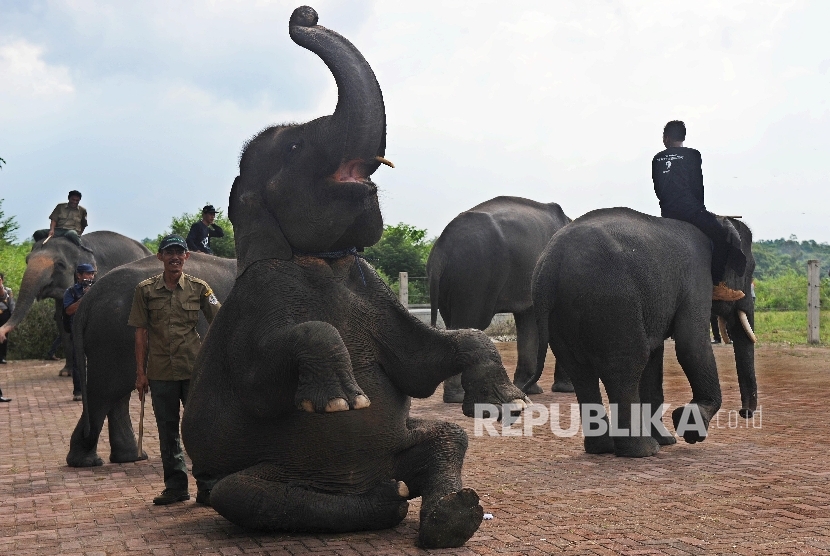REPUBLIKA.CO.ID, OSLO -- The illegal killing of African elephants for their ivory seems to have fallen from record peaks but poaching of the animal is still far too high, an international report said on Thursday.
More patrols in wildlife parks, better forensic techniques for tracking the origin of tusks, and a crackdown on corruption by China, the main market for ivory, were among factors helping to limit the slaughter.
"There are elements of good news, but we are nowhere near the success we need to turn the trends around," John Scanlon, secretary-general of the Convention on International Trade in Endangered Species (CITES), told Reuters of CITES findings.
About 60 percent of the elephants found dead in the wild in 2015 had been killed by poachers for their ivory rather than having died of natural causes, down from almost 80 percent at a peak in 2011, it said.
A CITES index tracking the illegal ivory trade dipped in 2014, the latest year for which data are available, from peaks in 2012 and 2013 that were the highest since international commercial trade in ivory was banned in 1989.
Taken together, the data indicated that poaching was declining or had at least stabilised after a surge that began a decade ago, CITES said. But rates were still far too high to enable depleted populations of the world's largest land animal to recover.
Scanlon said that best estimates were that illegal killings peaked at around 30,000 in 2011 and were still in the "low tens of thousands" a year.
"In some parts of the African continent we are confronting potential local extinctions, in particular in central and western Africa," he said. Southern Africa had the lowest rates of poaching.
Africa now has only about 500,000 elephants, down from 1.2 million in the 1970s. Ivory is prized in everything from bracelets and buttons to carved ornaments.
CITES, with about 180 member governments, will meet in Johannesburg in September to discuss how to protect wildlife.
Kenya will lead calls for stronger bans on the ivory trade and torched thousands of elephant tusks and rhino horns from a government stockpile in April.
By contrast, Zimbabwe says the best way to raise funds to help protect its 83,000 elephants is by allowing it to sell ivory stockpiles. The last legal sales of African ivory from stockpiles, to China and Japan, ended in 2009.



